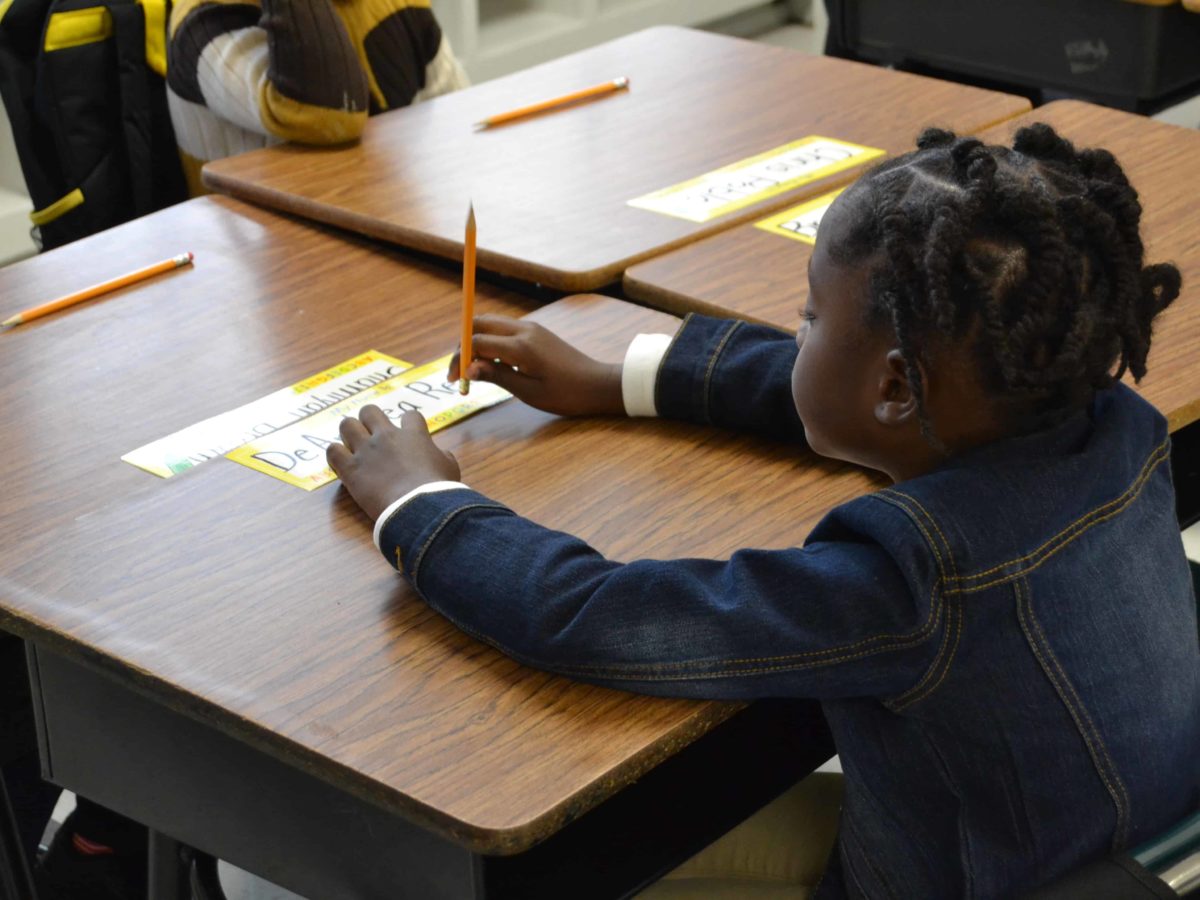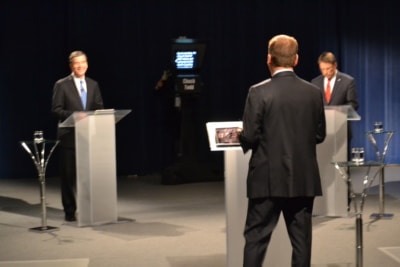

The general election Tuesday spread a quilt of uncertainties over North Carolina and its K-12 schools. The patch-work of outcomes did not resolve key policy issues but rather prolonged the state’s great debate over education.
A short-term uncertainty has to do with the not-yet-final count of votes in the governor’s race. With 2.65 million ballots counted, Democrat Roy Cooper holds a 5,000-vote lead over incumbent Republican Pat McCrory. The tally of provisional and absentee ballots comes next week.
If Cooper prevails, as his campaign confidently figures he will, the new Democratic governor would pursue an agenda markedly different — more pro-public schools, less choice-oriented — from the Republican agenda of the past five years. Uncertainties abound in whether Cooper can find common ground with enough Republican legislators to make progress, or whether there will be a period of stalemate during which he would plan for the future, and use his budgeting and veto powers to define education issues for elections in 2018 and 2020.
If McCrory ends up winning, the state again would have a Republican governor dealing with a veto-proof Republican legislative majority with its own ideas about education — as well as a new situation in which the GOP governor serves along with a Republican president, Donald Trump, inclined to favor alternatives to traditional public schools. What’s more, the re-election of Lt. Gov. Dan Forest, who serves on the State Board of Education, keeps in place a full-throated advocate for parental choice in education.
Out of the elections has come a new voice in the state’s education policy debates: Mark Johnson, a young Republican who has served on the Winston-Salem/Forsyth County school board. Johnson won the race for Superintendent of Public Instruction by defeating veteran incumbent Democrat June Atkinson.
As a newcomer to state government, Johnson surely will require a learning-curve period, especially in negotiating his relationship with other power centers: the governor, the Republican-dominated legislature, and the State Board of Education. Like other Republicans, Johnson has opposed Common Core, while he has proposed giving local school authorities more flexibility in using state funds. The new superintendent told voters that he would use the office as a “bully pulpit” for public education.
By returning a veto-proof majority to the state Senate, voters in effect reconfirmed Senate President Pro Tem Phil Berger of Eden as the state’s most-powerful legislator. Berger calls Republicans into caucus, where they agree on a common position, which then prevails on the Senate floor, usually with little or no dissent.
Major education initiatives bear the stamp of Berger’s leadership in the Senate: for example, the grading of public schools A-through-F, the third-grade reading requirement, raising the limit on charter schools, and the mandate to the UNC system to establish eight laboratory schools. In the education realm, the 2017 legislative session will be defined by whether Berger seeks to renew his policy entrepreneurship affecting teachers and schools, or whether he turns his attention mostly to other issues.
Another patch of uncertainty has to do with the Trump presidency. As a candidate Trump said little about public education. He placed schools in his litany of inner-city brokenness, and his victory speech early Wednesday morning listed schools among infrastructure items he would propose to build.
Trump will enter the White House after 16 years of intentional federal activism in education — the Republican Bush administration with No Child Left Behind and the Democratic Obama administration with Race to the Top. Now the Trump administration will take over implementation of the revision of the elementary and secondary schools law, known as the Every Student Succeeds Act, which is designed to strengthen the states’ hand, and lessen the federal grip, on education.
In Washington and in Raleigh, education policymaking does not take place in a vacuum. An especially contentious campaign illuminated, and intensified, the political, cultural, and social polarization of the nation. Uncertainty abounds as to whether schools, teachers, and students will find their needs and aspirations entangled in eruptions of inflammatory rhetoric and persistent legislative stalemate.


